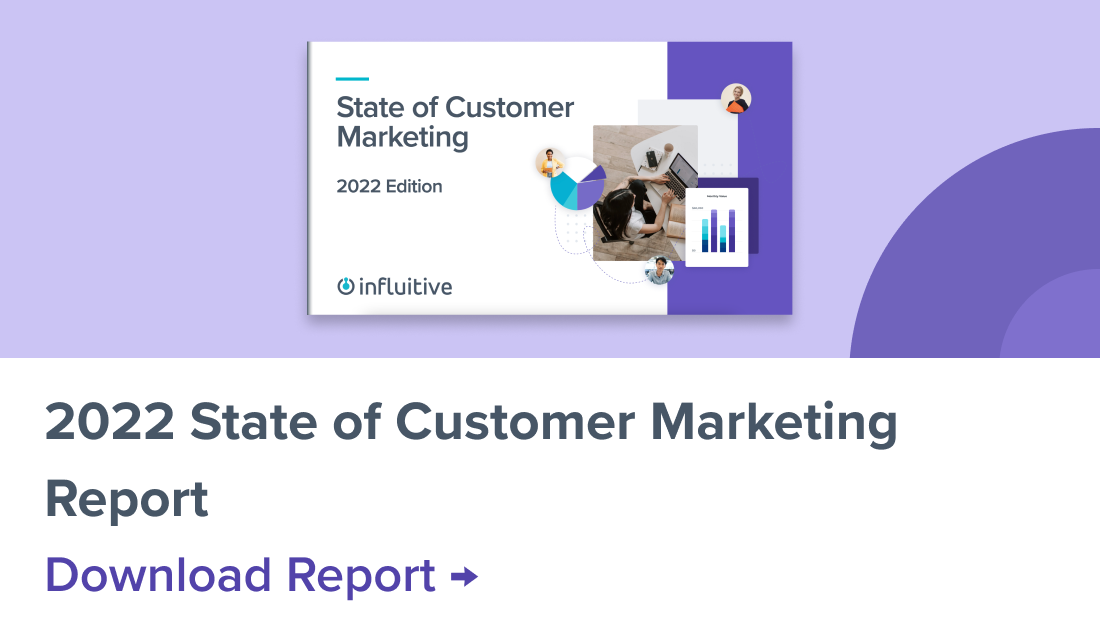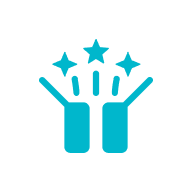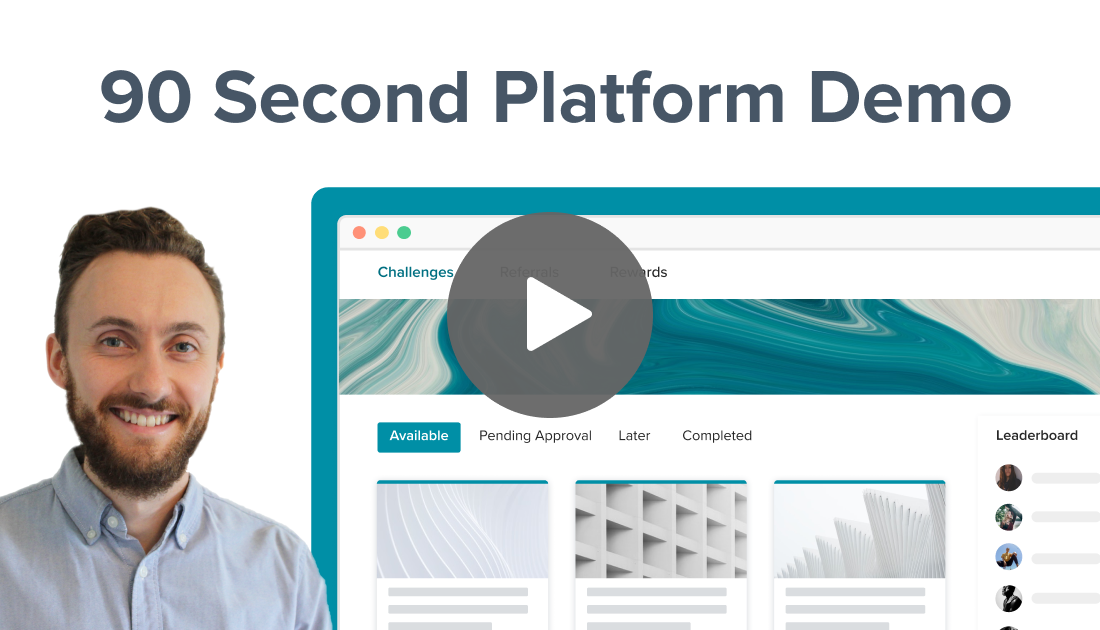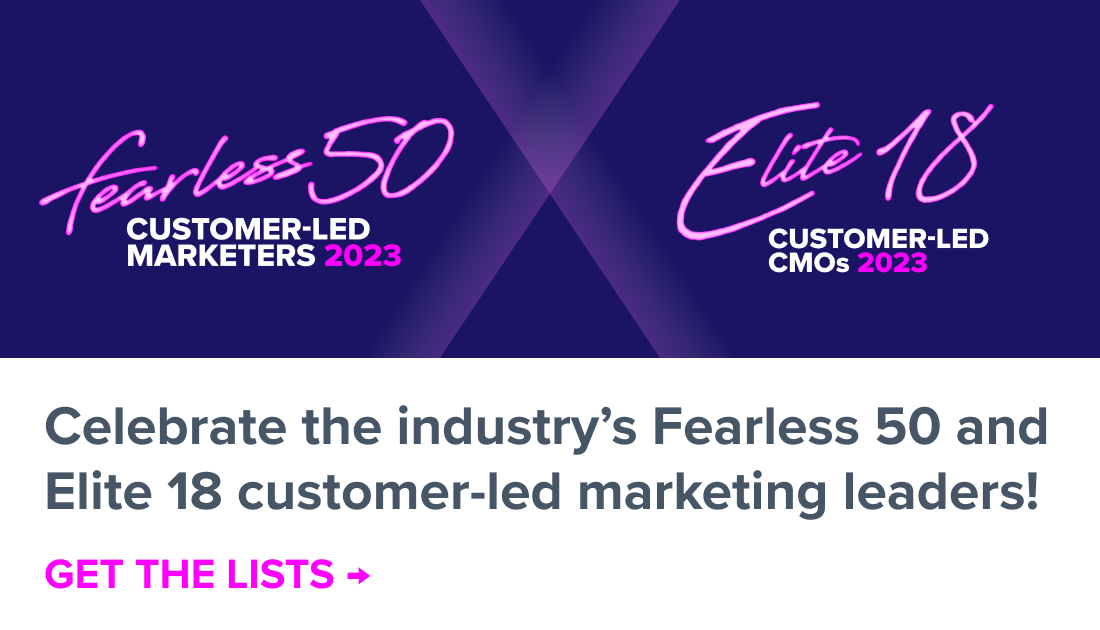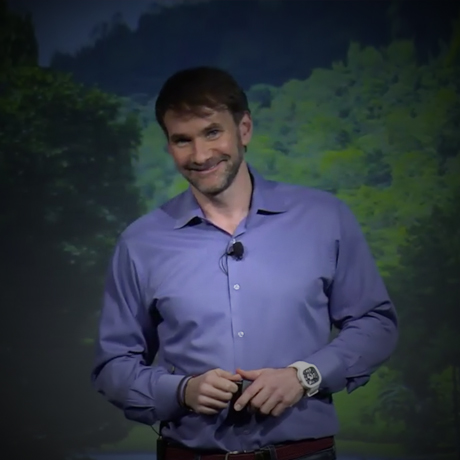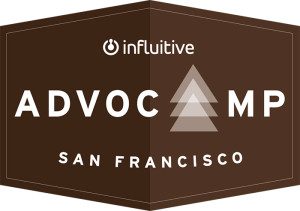 Has automation made marketers forget what it’s like to be human? The need to fill their pipeline with as many leads as possible has made connecting with prospects on a 1:1 level seem like a luxury they can’t afford.
Has automation made marketers forget what it’s like to be human? The need to fill their pipeline with as many leads as possible has made connecting with prospects on a 1:1 level seem like a luxury they can’t afford.
In his Advocamp 2016 keynote, Keith Ferrazzi, author of Never Eat Alone, explains the principles marketers should use to quickly build meaningful relationships with prospects and create a tribe around their brand. (Hint: it’s got nothing to do with technology.)
About 15 years ago, I used to be a marketer, but it was a very different era. I was a CMO at Deloitte and Starwood Hotels back in the day before Facebook. I have a lot of admiration for what you all do here and how you actually keep up with the dizzying pace of what’s going on out there in technology.
At the end of the day, I think we’ll all agree that the most important thing we’re trying to do as marketers and as business people is make real connections with our clients. That’s why I was really excited to come here and make sure the message of the research we’ve been doing at Ferrazzi Greenlight (a research institute focused on changing human behavior in the workplace) for 15 years really comes to the forefront.
Out of curiosity, how many of you in this room have someone’s behavior in the workplace you would like to change? How many of them are sitting next to you? Good.
The critical body of work we’ve done on this has taken an anthropological behavioral science approach (we originally thought it was going to be psychological). A long time ago, we thought the primary foundation of our work was going to be psychology because at the core of all our work of human behavior change, we found that people fundamentally change behavior with and through relationships. It’s very difficult to change fundamental behavior by yourself. If you’re looking to change a set of behaviors, you’re going to do it with and through other people. That’s why Weight Watchers actually has statistically higher weight loss. If you have an addiction, and you’re trying to change it, a 12-step program where you show up with the compassion, the support and the accountability of a group of individuals, is what makes you change behavior.
Embracing advocate marketing
 There’s a set of behaviors that each of you has to think about changing in your own mindsets. The transition from a more traditional set of behaviors and practices as marketers to a different (and perhaps more risky) set of behaviors as advocate marketers.
There’s a set of behaviors that each of you has to think about changing in your own mindsets. The transition from a more traditional set of behaviors and practices as marketers to a different (and perhaps more risky) set of behaviors as advocate marketers.
I have to tell you, once you start to get into the relational space it starts to get scary and messy. We’ve been teaching large organizations how to transform their relational competency in B2B selling. The reason most salespeople don’t sell higher in the food chain (like you’re trying to get them to do) or don’t take bigger risks with creating more interesting product solutions is because they’re scared shitless to do it. They don’t believe they deserve to be in the room.
What we found after studying relational competencies for 15 years is that fundamentally, your capacity to deepen relationships (whether it’s for advocacy marketing or direct sales) depends on your capacity to create an environment around yourself that invites people in to have a better relationship with you.
Now think about that as a marketer. What does that mean, to create an environment around yourself that invites people in? As an individual, it’s a very psychological issue and people are often terrified. At what age were most of your relational competencies locked and loaded at, your personal relational competencies, your assumptions of the world and what’s safe and what’s not safe? The answer is three. At three years of age, is when you start to lock and load your relational competencies.
When I heard that, as a research institute of human behavior change trying to advance relational competencies in the workplace, I was like, “Damn. If they’re locked and loaded, what the heck can I do?” Then I heard some worse advice, which is that sociologically, the world is actually less relational than it was 20 years ago. Independent of being more connected, we’re less relational. There’s a wonderful book called ‘Bowling Alone’ that really talked about how we’re all running around the world in relationships of one. My anthropologist taught me that 70,000 years ago, we were all born as a species. No matter where you’re from in the world, we are all born as a species into a tribe. Interestingly enough, we are hardwired to behave at our best when we are in tribes.
Although we thrive in interdependency, at our core, we long for the connectedness of a group of people that won’t let us fail. Unfortunately, we are walking around today in a highly technologically-enabled world acting as tribes of one. Your job as marketers is to invite people into your tribe because once you get inside it, people exhale and thrive. They function the best that they can, they give, they’re generous, they let their guards down and are both accountable to each other and authentic. That’s what we’re trying to do here at this conference. You’re trying to create a tribe of people who believe in relationships and in advocacy.
You have to practice this because what we learn is the only way you can actually change human behavior is not through knowledge but through practice. If knowledge was enough to change human behavior then we wouldn’t have obesity or smokers in the world. You need the actual practice in order to fundamentally reprogram the behaviors of the past. Now the stuff that I’m talking about today can actually be applied to all sides of our life.
Changing human behaviour through practice
The first story is about my son, who came into our lives at 12 years of age.
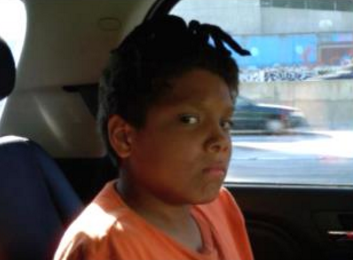
He had been in 31 homes before he came into ours as a foster child, 31 homes. Imagine the relational competency of this young man who has been taught to push everybody away before they hurt him.
This year, he published his first book.
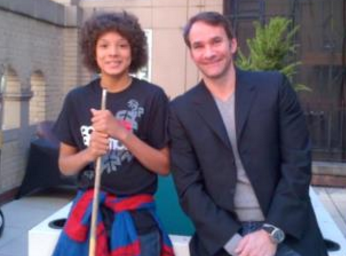
You guys can go online at Amazon to see it. His name is Daniel Broken Manning. I’ve been trying to get him to release his grip on his term “broken” (which is what he thinks he is), but he is now using it as his author’s name. He’s an extraordinary young man, but I had to create advocacy and a tribe around him. I had to go out into the community of Los Angeles and find other members of the inner city.
I looked at my home. My fiancee is Asian and I’m an old white dude. I said to myself, “We need brown in this house because this boy is half African-American and half Mexican. He’s black self-identified.” I wanted him to have the kind of role models that he needed, so I created advocacy around my boy. I went out and got other role models in the Los Angeles community and embraced them. I picked up the phone, and I would say, “Hey, listen, John, you’ve got a great foundation around social literacy and inner city literacy. I would love for you to come to my home. I need black people at my dinner table.” There would be this silence. I’d say, “Let me qualify, but more importantly, let me tell you I know the CMO of Wells Fargo, and I’d love to have you over with her because I think she’d really like your work around financial literacy. I used to work for Michael Milken. I’d like to invite him over sometime and make an introduction there to you. Would you come to my home?”
 Build strong relationships by leading with generosity
Build strong relationships by leading with generosity
My second story is about a lesson I learned—everyone is busy, narcissistic and self-centered. This goes to my point earlier, that individuals are walking around as tribes of one. How are you going to arrest people’s attention and invite them into your tribe? People are not going to respond to, “Hi, I want to be your friend.” It’s not going to work. You’ve got to lead with undue and excessive generosity in order to arrest people’s narcissistic, individual attention. Once you have their attention, then you can be authentic. Then you can build an authentic relationship, but leading with the relationship, unfortunately, in today’s self-serving, narcissistic and independent world, is not going to be what invites people in and actually allows them to accept you in their tribe.
As marketers, what is that excessive generosity?
I learned all of this very early on. I grew up in Pittsburgh with an immigrant Italian family. My dad was an unemployed steelworker most of my life and my mom was a cleaning lady. At age 11, I had to go get a job—not just because I needed cool money to kick around, but we needed it as family money. My mom was making $30 a day cleaning, and I could make $20 a day as a caddy at the country club. It was a big deal. My dad said things like, “Keith, show up at the golf course a half an hour early.” I’m like, “Pop, no one is there. Why do I do that?” Then he’d say it again, “Show up at the golf course half an hour early.” I knew I couldn’t fight it, so I showed up at the golf course a half an hour early walking around bored. However, I would notice things, like where the pins were placed. As a result, when I was on a blind dogleg, I could tell my golfer, “Hey, use one less club there. It’s the front of the green.” I’d also know how the greens were cut, so I had better information.
There was this woman, Mrs. Poland, who asked me to be her caddy two days in a row. That’s never happened before. Normally, I would get out twice a week and make $40 (which is a big deal). But now, I got $40 in 2 days. Then again, on the third day she had me caddy for her. I’m like, “This is amazing.” After the fourth or fifth day, she started asking me personal questions, which made me uncomfortable. In my head I was thinking, “Mrs. Poland, I’m not going to answer your questions because I’m scared.” She’s asking me things like, “What do you want to do with your life?” And I’d reply with, “Go to college.” But then she wanted me to come to her house and meet her son. At this point, I’m like, “Listen, stop it, creepy lady. I’m not going to meet your son. I don’t like rich people, and their kids tease me at school. Leave me alone.” I’m pushing people away, just like my son did because of fear and prejudice.
I now say this to my boy all the time, “Kiddo, prejudice is going to hold you back.” He’s like, “Damn straight.” I’m like, “No, the prejudice that you don’t believe other people will accept you because you’re a foster son.” That’s what he thinks. It’s not because of race for him, it’s because he doesn’t have parents so he’ll never be loved by anybody. That unfortunately, applies to all of us.
If you believe that all you have is your transaction, you’ll never get there.You’ve got to believe in yourself and in the ability to invite people in because authentically, you ought to believe that they want to be there with you. You have to build a product that’s so damn extraordinary that you know that you’re inviting people into what is absolutely a beautiful (and long-term) relationship.
The long and the short of it is Mrs. Poland wore me down. She got me to share with her what I wanted. She said, “Keith, come on, seriously, what do you want to do with your life?” I said, “I know you’re going to laugh, but my dad says I could be President of the United States.” She looked at me, and she said, “You know what? You could, and I would vote for you.” Literally 2 days later she had the local Congressman, John Murtha, in her foursome with me and got me an internship. She introduced me to a person who advocated for me. At the end of the day, she advocated for me.
I went from a kid who didn’t know if he was going to go to college, to a person with hopes and dreams. Thanks to Mrs. Poland, and the relationships I created, I went to Yale undergrad. I went to Harvard Business School because I fought my prejudice, or she fought my prejudice and brought me out of my shell and advocated for me. That was so powerful. It changed my life.
About a year later, Congressman Murtha was indicted, so I chose not to go into politics.
I’m here in front of you because advocacy matters. It took a little boy who had dreams and got him on stage. That’s just crazy. It happens, I fought it. But I don’t want you to fight it, and I don’t want your clients to fight it—I want you to practice. I want you to learn here how to open yourself up. This is your day one. Day one of opening your heart in a different way. Day one of inviting people in. Day one of creating an environment around yourself that says, “Come on in!” as a brand and as a marketer.
Do you think you’re going to get ahead without that kind of advocacy in your life? You need this in your life. What are you doing to create that environment?
One thing I learned from Mrs. Poland is if you want to build deep and strong relationships, you have to lead with generosity. You know why she did that lovely stuff for me? It wasn’t because I was a good kid, there were plenty of other good kids. She did it because I showed up at that golf course a half an hour early and I took two strokes off her golf score. That’s why she had me there every day.
That is your job as marketers. Be so damn generous that people have no choice but to enter a relationship with you. Then when you show up, you’re going to be so damn authentic that they have no choice but to love you. Then you have a relationship that yields loyalty. You lead with generosity and you follow with authenticity. You create an environment around yourself that invites people in.
Always ask “How can I help?”
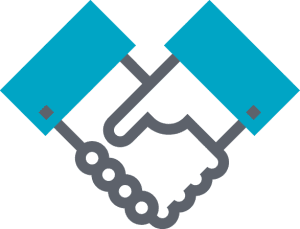 I just launched a new business, and I need help. I need help from everybody in this room. We’ve been managing the cultural transformation at General Motors, Verizon, BASF and eBay—big work with big C-suite individuals. With my new tech company, we accelerate onboarding of new employees once that employee goes into the hands of the manager. Through a series of AI and simple questions, we are telemetry for the manager and the HR department that says, “Hey, so-and-so needs positive reinforcement. Go give it to them. So-and-so needs goal congruity, go give it to them. So-and-so needs a conversation of what success looks like for the next 30 days, go give it to them.”
I just launched a new business, and I need help. I need help from everybody in this room. We’ve been managing the cultural transformation at General Motors, Verizon, BASF and eBay—big work with big C-suite individuals. With my new tech company, we accelerate onboarding of new employees once that employee goes into the hands of the manager. Through a series of AI and simple questions, we are telemetry for the manager and the HR department that says, “Hey, so-and-so needs positive reinforcement. Go give it to them. So-and-so needs goal congruity, go give it to them. So-and-so needs a conversation of what success looks like for the next 30 days, go give it to them.”
We accelerate the critical relationships to advance that managerial prowess because managers don’t have time to coach any more. I’ve just woken up because of this conference. For the last year, I have been utilizing my C-suite (CEO, CMO and CHRO) relationships, saying to them, “I’ve got this great product.” But I have never built an engine for customer acquisition. I didn’t think about it. I just used my pre-existing relationships and said, “You know what? I’m out pushing my product on people that I don’t even know if they want it yet.” I’m not using the clients that we currently have as the advocates to go seed the clients that we need, and I’m embarrassed. I was a CMO twice, and I need some help. If anybody has any clue what I should be doing differently or better, let me know. I don’t even have a CMO, but you know what? We’re going to hire one now. If anybody is interested, come and talk to me.
My point is that I showed up here as a gift to some friends. My intention was to be generous, share some wisdom, get on a plane and go home. They’ve changed my life, and I want to say, “I appreciate what they’ve done for me by opening up my eyes to help manifest a mission that I have to use technology to scale the relationships that matter to us.” I want to thank these guys for creating an amazing event.
Before I leave, I’d like to say one more thing. You’re going to have breaks, and here is your mantra. When somebody asks, “How can I help?,” I want you to take it seriously. Don’t worry about networking at this conference to get what you want; worry about serving other people here. If everybody is worried about serving everybody else, you’ll be just fine. Let’s create an advocacy relationship where everybody is walking around saying, “How can I help, how can I help?”
When someone does this, it means they’re using this little trick that a speaker once mentioned because they’re a little fearful of building relationships—and would you mind talking to me? Would you honor that when somebody comes up and says, “How can I help?,” by maybe telling them how they can help. You can tell them what you’re here to learn like I just did. I just shared with you that I have no customer acquisition strategy for my business, and I hope there’s somebody out here that goes online, and sends me an email about how they can help.
When that happens, let your guards down and be willing to say, “I’m afraid. I don’t know. I’m trying to figure it out.” That’s what would make this powerful for you. That’s the practice that’s going to make you a better professional because people will begin to help you. That’s the practice that will flow right into your marketing, and will reach out to the world with authenticity and generosity because you’ve practiced it here today.
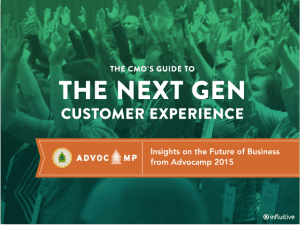 Get actionable insights & advice from 20 of the most innovative customer experience thought leaders who spoke at Advocamp 2015.
Get actionable insights & advice from 20 of the most innovative customer experience thought leaders who spoke at Advocamp 2015.








